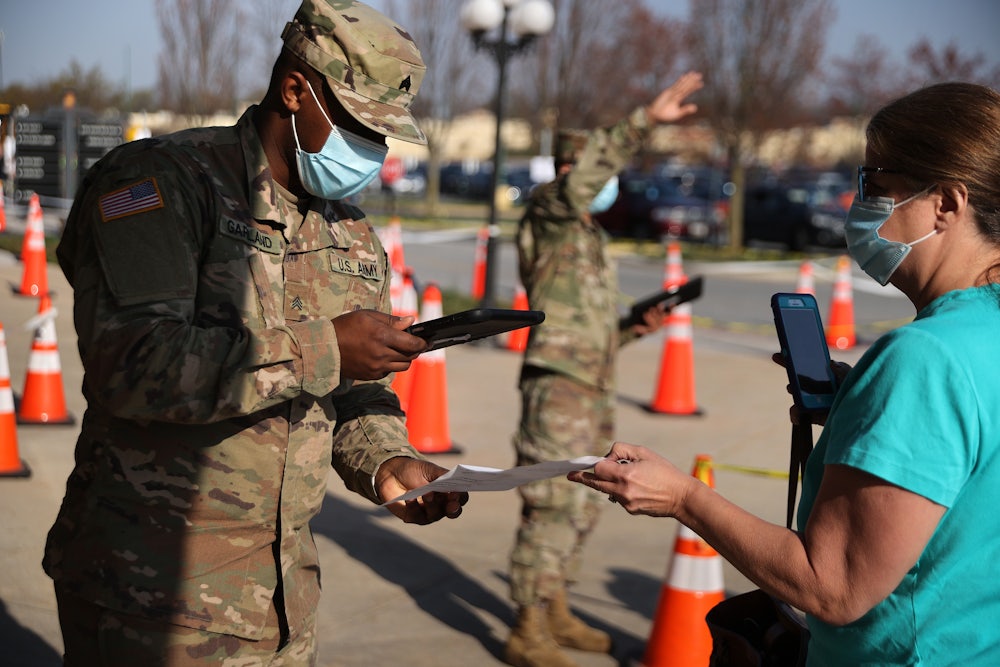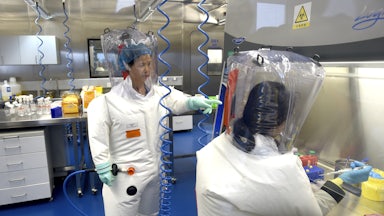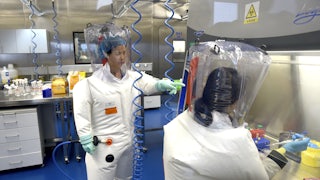Last week, Israel, with one of the highest Covid-19 vaccination rates in the world, reported something troubling: The so-called delta variant was driving another Covid-19 spike in the country—and half of the cases were among fully vaccinated people.
The delta variant is what experts have long feared: It’s more contagious, bringing a wave of hospitalizations and deaths for unvaccinated people wherever it goes, and it shows the early signs of being able to evade vaccines. In early June, one vaccine scientist dubbed delta “the variant of the future” because it signals, far sooner than experts hoped, the rise of more worrying strains.
Israel has been a test case of sorts—a window into what happens when the majority of a country is vaccinated quickly and efficiently with one type of vaccine. The question now is what Israel’s data on delta should mean for other countries. And so far, experts are uniting behind a message that may seem counterintuitive, given Israel’s report that vaccinated people are becoming infected: The best approach is still to vaccinate people as quickly as possible. In addition, governments should take some basic precautions to prepare for a rise in delta and other variants. Right now, experts told me, the United States is screwing up.
The vaccines we have now remain incredibly good at preventing severe illness and death—even against the delta variant. People who contract Covid-19 after vaccination tend to have less of the virus in their bodies, with mild or no symptoms and a shorter length of illness, recent studies show. And there’s another crucial part: Even if they do still get a mild case of Covid, the chance they will pass the virus on to someone else has been incredibly low. (This is particularly true for those who receive the mRNA vaccines.) “The vaccine is still your best defense,” Dr. Andrea Cox, a professor of medicine at the Johns Hopkins University School of Medicine, told me.
The rise of the delta variant, therefore, shows us how important it is to fully vaccinate as many people as possible, as quickly as possible, around the world. The more contagious a variant is, the higher the percentage of vaccinations we need to reach community immunity. The rise of such a contagious variant—and the promise of others like it to come—makes the goal of global vaccination even more pressing. Experts are concerned that SARS-CoV-2 will continue evolving until the vaccines don’t prevent illness or death as well as they did—and that unvaccinated people will continue getting sick and dying as the pandemic drags on.
“This is the toughest version of the virus, by far, that we’ve seen,” Dr. Eric Topol, director and founder of the Scripps Research Translational Institute, told me. Delta is about 40 percent more contagious than the alpha variant, or B.1.1.7, which was itself more contagious than the original virus. And although the vast majority of people are strongly protected by vaccines, a recent report from Israel found that the vaccine was about 5 percent less effective in people above the age of 75 and those with hypertension, diabetes, and obesity. “The vaccine was not designed against the delta variant, and not everyone is responding perfectly to the vaccines. That is a problem,” Cox said. However, she added, “those who are infected following vaccination are still not getting sick and not dying like was happening before” vaccination. Although cases among vaccinated people have risen in other countries, hospitalizations and deaths have not risen at the same pace, which shows how effective the vaccines have been at saving lives. We need more data on how well the vaccines prevent transmission of the delta variant specifically, but research on previous variants is encouraging, Topol and Cox said.
The most pressing worry is for those who have not received any vaccines at all. Unvaccinated people account for the vast majority of all Covid-19 cases. “There are people out there that have a flashing sign on their forehead saying to delta: Infect me, infect me. Because the virus is going to find these people. It’s just so good at that. And I don’t think people understand,” Topol said. “This virus is the most efficient virus for finding new hosts that are vulnerable.”
Sluggish vaccination rates, Topol said, mean “we’re definitely going to prolong the pandemic.… We’ve got too many patches of vulnerability.” Cases are now rising precipitously among states and regions with low vaccination rates: Nevada, Missouri, Arkansas, Wyoming. Delta is doubling almost every week, now representing about one-third of all Covid cases in the U.S. “A lot of people keep talking about the fall,” Topol said, referring to predictions of a possible autumnal spike in cases. “But the delta variant story is going to be played out largely in July and August, at the latest. It’ll be over all the country, dominant, in the next two weeks.”
And there’s another problem. It’s still difficult to understand exactly how prevalent delta and other emerging variants are, because we’re still not doing enough genomic sequencing and surveillance in the U.S., Topol said.
“The [Centers for Disease Control and Prevention] got $1.2 billion from the rescue fund to do this, and they’ve done nothing. They’re not even putting out their request for funding application until late August. So we’re just sitting on this,” Topol said. “In this country, we have only learned about variants by other countries telling us, ‘Watch out for this, watch out for that.’”
In particular, the CDC has made the perplexing decision not to track mild or asymptomatic breakthrough cases, the term for illnesses among fully vaccinated people. Topol called this a “travesty.” While it can be difficult to capture enough virus for sequencing if someone has a low viral load (a very good thing for preventing transmission), every breakthrough case that can be examined should be, Topol said, to understand how exactly the virus broke through the vaccine’s protective barrier. That’s how new variants of concern would be detected, Topol said. “If you don’t look, you don’t find.”
In addition, he said, full licensure of the vaccines from the Food and Drug Administration could help overcome some hesitations people have about getting a new vaccine. Every shot in an arm helps reduce the chance of spreading this and future variants. And FDA approval would also remove some barriers for institutions seeking to make vaccination mandatory. “If everybody got vaccinated, the virus wouldn’t be circulating and wouldn’t have the chance to develop these mutations that enhance the efficiency of transmission,” Cox said. “And if everybody got vaccinated, we could protect the people who don’t respond well to the vaccine, by forming a shield around them of vaccinated people who will prevent transmission to them.”
In the face of rising cases, Israel on Sunday resumed its indoor mask mandate among the fully vaccinated. Los Angeles county followed suit on Monday amid a delta wave, despite high rates of vaccination and some immunity from surviving previous bouts with the virus. The WHO has also recommended that vaccinated people continue wearing masks, particularly in places with low vaccination rates. Responding to these developments and increasing concern about the delta variant, Dr. Rochelle Walensky, the director of the U.S. CDC, reiterated the agency’s position on Wednesday that fully vaccinated people mostly don’t need masks but that local authorities might use masking ordinances to protect the unvaccinated.
Mask mandates, like vaccinations, have become highly politicized in the U.S. Those who remain most at risk because they are unvaccinated are also those most likely to shun masks. Instead of mandates, therefore, it’s probably more effective to focus on the proven ways we can protect ourselves and others from a virus that is only growing more severe. That means continuing to expand access to vaccines for the people who are hardest to reach and often most at risk—as places like New York City did last week, allowing anyone to request at-home vaccinations. Without a sustained effort to vaccinate the world, it’s only a matter of time before the next alarming variant emerges.








